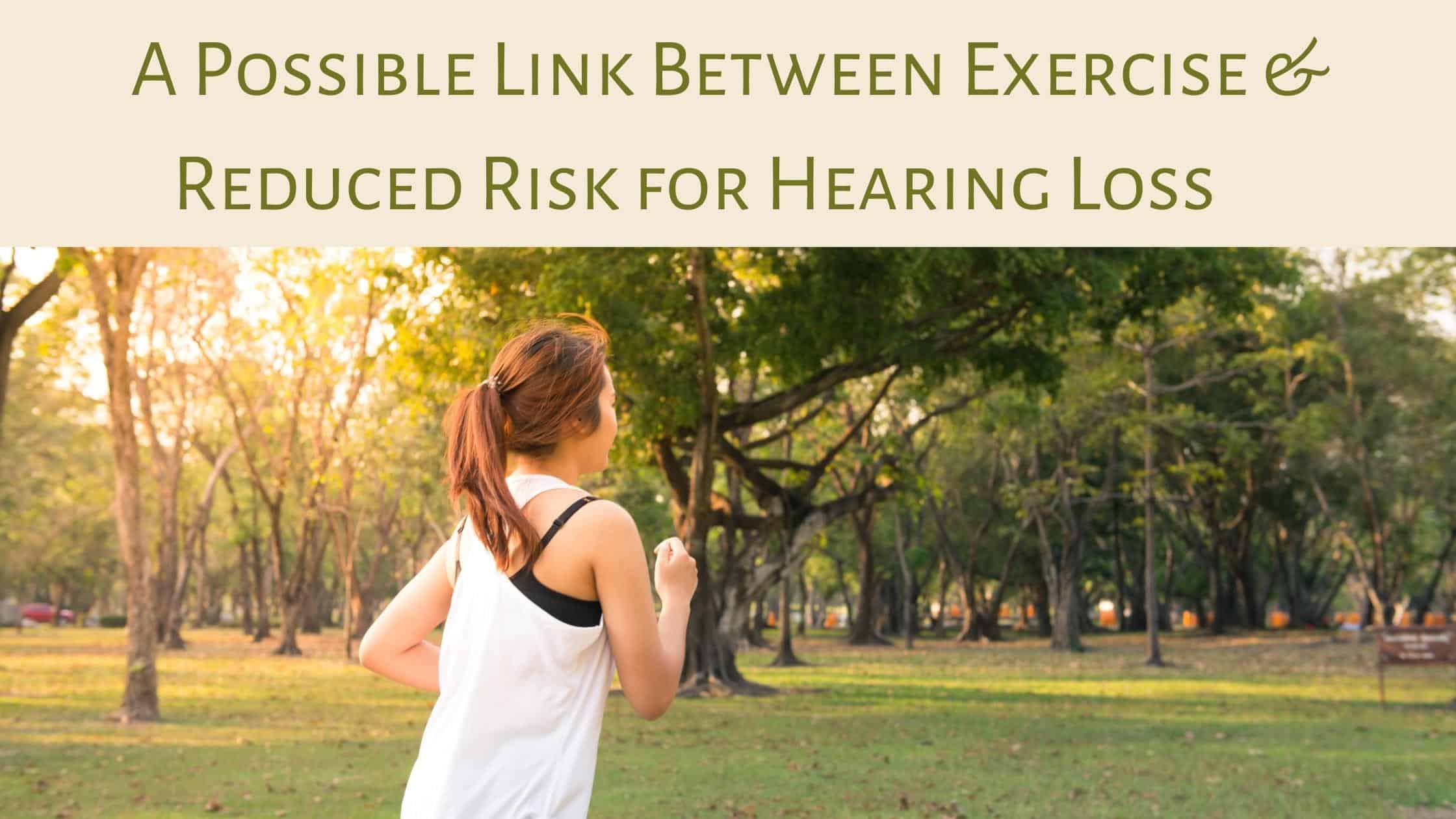
Nobody goes to the gym to tone their ears, but new research is showing that regular exercise can, in fact, strengthen our defenses against hearing loss! Physical exercise has numerous, well-documented benefits for overall health including reducing cardiovascular disease risk and better balance and coordination, as well as better endurance, and improving sleep and mood.
Your ears may seem distant from the muscles doing the heavy lifting, but in truth, the systems of your body are connected to each other in myriad ways. Let’s take a look at how exercise and hearing loss are connected.
The Science
The significance of exercise to hearing loss was first researched in mice where a population of mice were given an exercise wheel for regular activity while a second population remained sedentary. Over the lifespan of the exercising mice, 5% developed hearing loss. For the sedentary mice, the rate of hearing loss shot up to 20%.
The hearing loss in mice was found to be based in the collapse of tiny structures in the inner ear. Both the small sensory hair cells that detect sound vibrations in the air and the delicate capillaries that nourish them were damaged to the point of significant hearing loss. These tiny and fragile components of our hearing may be the key link between exercise and better hearing.
Circulation and Hearing
Regardless of the type of exercise you are doing, it has the effect of increasing circulation in the body, and better oxygen delivery throughout your system. This improved circulation is especially important for delivering oxygen to the body’s smallest blood vessels. At rest, the heart does not always pump blood strongly enough to reach all these “nooks and crannies” of the circulatory system. Exercise gives our circulation added strength and support.
Keeping blood and oxygen flowing to the fine structures in the inner ear is very important to our hearing. The sensory hair cells are critical to the detection of sound and the transmission of sound signals to the brain. While these cells are tiny and vulnerable they aren’t capable of repairing or replacing themselves when they are injured – a damaged hair cell will remain damaged our entire life.
When hair cells are starved of oxygen they are much more susceptible to damage. Decreased circulation, especially as we age, can contribute greatly to the onset of significant hearing loss as deprived hair cells fall out of commission. In fact, risk of hearing loss becomes significantly elevated with the presence of circulatory issues such as diabetes and cardiovascular disease.
Choosing the Right Exercise
Study after study has shown that regular exercise comes with a host of benefits for your body and your health. Choosing the right exercise for you is based on your personal needs and abilities. Look for an exercise routine that you are interested in and that you can commit to regularly. Different forms of exercise can help you reach certain goals , such as weight lifting to build muscle mass or yoga to improve flexibility. Not all types of exercise will be interesting to you, and there may be some forms of exercise that you aren’t physically able to perform. It’s all good! No matter what exercise you opt for, regular physical activity boosts your circulation and can help improve your health.
Just One Caveat
There is one circumstance where research has shown that engaging in exercise may be hazardous to your hearing: exercising accompanied by music played at hazardous volumes. Whether through a gym’s stereo system or pumping your favorite playlist into your earbuds, loud noise carries with it the potential to undo all the hearing benefits of exercise.
Dangerously loud noise is the most common cause of hearing loss – and the most preventable. When you listen to very loud music, your hearing can be permanently damaged in a matter of minutes. Worse, research has shown that while exercising, the noise threshold at which our hearing may be injured can drop significantly.
Fortunately, this sort of hearing injury is easy to avoid by reducing the volume on your exercise music. Be especially aware when setting your volume levels on a playlist that will be directly played into your ear. Loud noise is never good for your hearing, no matter when you experience it.
